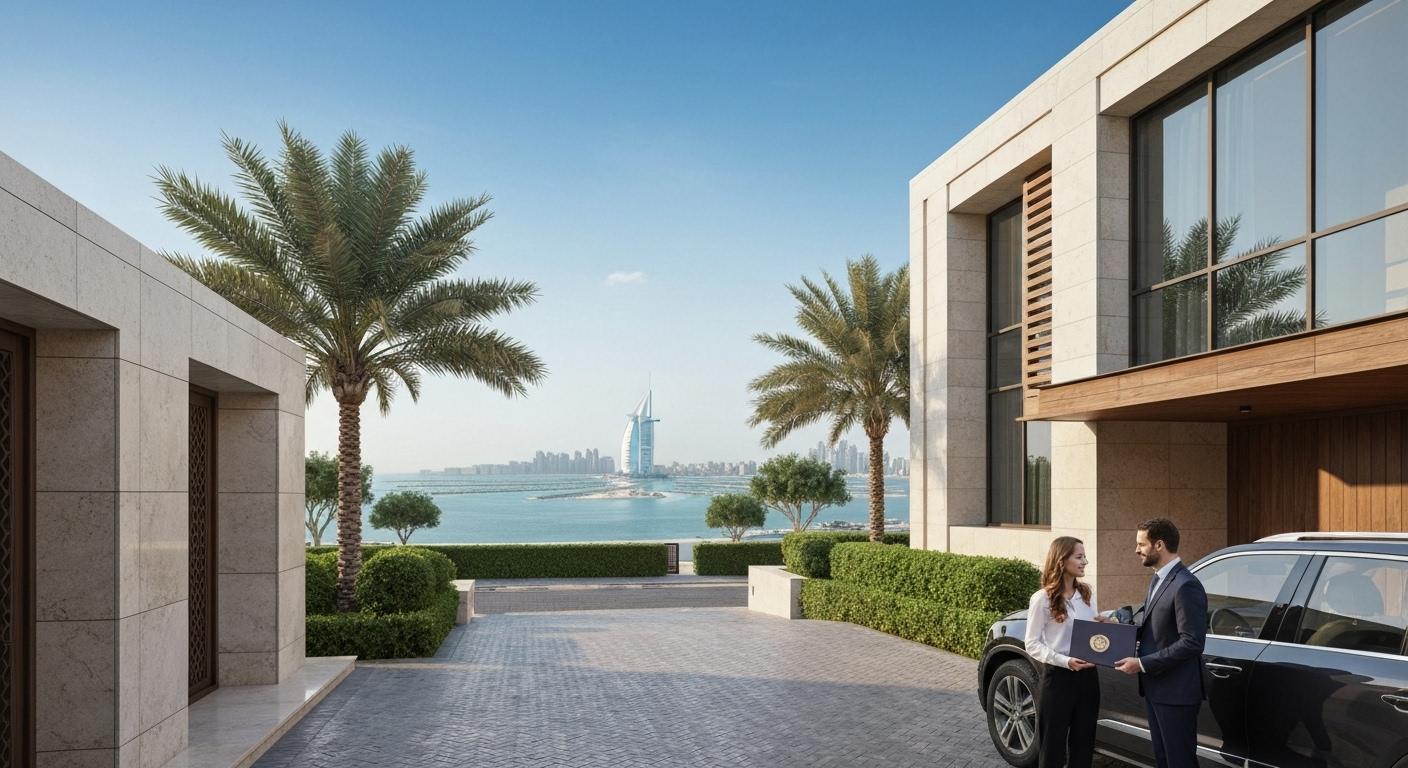If you’re searching for what freehold property means in Dubai for foreigners, this guide will provide you a clear definition along with insights into designated areas, legal rights, and the benefits for expat investors. We’ll also walk you through the steps foreigners take to buy freehold property, helping you make informed decisions in Dubai’s dynamic real estate market.
What Exactly is Freehold Property in Dubai?
Freehold property in Dubai grants buyers full ownership of a property and the land it stands on, without any time restrictions. Unlike leasehold, where you lease a property for a set period (commonly 10–99 years), freehold ownership is perpetual and can be sold, leased, or inherited at the owner’s discretion. In 2002, Dubai became the first emirate in the UAE to allow foreign nationals to buy freehold property in designated zones, sparking major interest from international investors and expats.
Purchasing a freehold property offers legal title deed registration with the Dubai Land Department. This guarantees your ownership rights are protected under Dubai law, regardless of changes in nationality or residence status.
Where Can Foreigners Buy Freehold Property in Dubai? (Designated Areas)
The Dubai government has earmarked several prime neighborhoods as freehold zones for foreign investors. Expats can purchase apartments, villas, and townhouses in areas like Downtown Dubai, Dubai Marina, Palm Jumeirah, Jumeirah Village Circle, and Arjan. New communities, particularly those by reputable developers such as Danube Properties, are frequently launched in these freehold areas to cater to growing demand.
Arjan—situated close to Miracle Garden and major highways—has become an attractive choice for international buyers seeking affordability, modern amenities, and access to Dubai’s robust infrastructure.
Benefits of Freehold Property Ownership for Expats in Dubai
Freehold ownership offers a compelling bundle of advantages for expats:
– Permanent homeownership: Owners can sell, lease, or pass properties through inheritance.
– Pathway to residency: Buyers and their families may be eligible for long-term UAE residency permits, making Dubai a popular choice for those seeking lifestyle stability and business opportunities.
– Attractive rental yields: Dubai’s rental market is historically robust, especially in key districts like Downtown and the Marina.
– No property tax: The absence of annual property taxes is a key lure for foreign investors.
– Access to world-class lifestyle: Freehold developments often feature premium amenities—swimming pools, gyms, and dedicated parking—set in multicultural, secure communities.
Danube Properties offers tailored payment solutions, such as a 1 percent monthly payment plan, making home acquisition accessible for both residents and overseas buyers.
Understanding the Legal Framework and Ownership Rights
Dubai’s legal framework ensures a transparent and secure transaction process for foreign buyers. Upon completion of purchase, a title deed is issued in the buyer’s name via the Dubai Land Department, confirming full ownership. This deed allows you to sell, mortgage, or lease the property at your discretion.
Owners in freehold zones enjoy the same rights as UAE nationals regarding property use, transfer, and inheritance, subject to regulations set out by Dubai’s real estate laws. The government’s pro-investor approach has paved the way for simpler visa programs and increased foreign direct investment.
The Process: How Foreigners Can Buy Freehold Property in Dubai
Step-by-Step Example of a Typical Purchase
1. Reserve your unit: Select from available freehold inventory in a designated area such as Arjan, Downtown, or Jumeirah Village Circle.
2. Sign a sale agreement: Review payment plans—many developers, including Danube Properties, offer flexible terms with minimal down payments or monthly installments.
3. Submit documents: Present your passport (copy), reservation form, and proof of address to initiate the buying process.
4. Secure NOC and pay fees: Pay a reservation deposit and associated Dubai Land Department fees (typically 4% of the purchase price).
5. Registration: After payment, the property is registered under your name, and you receive an official title deed, guaranteeing full ownership rights.
6. Handover: Once construction is completed, take possession of your new property and, if eligible, apply for a UAE residence visa.
This structured process, coupled with Dubai’s developer-led products, has made it easier than ever for foreigners to invest in real estate.
Investment Potential and Considerations for Foreign Investors
Dubai’s freehold market continues to attract investors looking for stability, capital appreciation, and strong returns. Key districts near metro stations and business hubs remain especially popular. Investors should consider:
– Market trends: Monitor price per square foot and yields across neighbourhoods, as these vary between established and emerging zones.
– Payment plans: Look for developer offers, such as Danube’s 1 percent monthly installment scheme.
– Long-term value: Analyze the area’s future development pipeline, proximity to schools and malls, and connectivity.
Investing in freehold property in Dubai offers the dual advantage of lifestyle and portfolio growth potential.
In summary, freehold property in Dubai means foreigners can acquire full ownership of real estate in specially designated areas, with legal guarantees and attractive benefits. For clarity on ownership laws or to explore tailored investment options with developer payment plans, contact Danube Properties to learn more.




